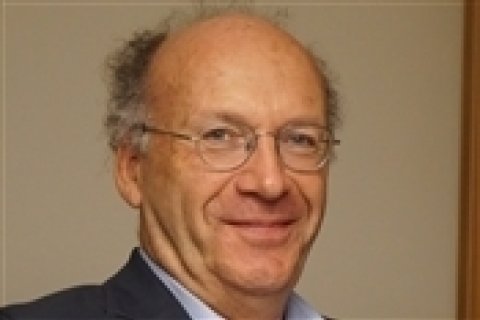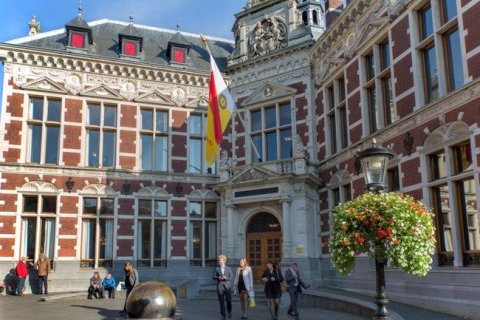Frans Pennings, Dutch linguist and lawyer on working with UUCEPP
How Public Procurement Law interacts with labour and social law and how to develop a theory in a social field.

Working together with colleagues from other disciplines is important for UUCePP researchers. We believe that finding solutions for societal problems requires a new type of researchers who are competent and conscious enough as to recognize the limits and the boundaries of their own discipline. In this new series interviews scholars with whom we work together or are connected to in one way or another, introduce themselves in brief interviews conducted by Elisabetta Manunza and Fredo Schotanus. Today: professor of social law Frans Pennings.
'Who' and 'what' are you?
"I am Frans Pennings, professor of social law at Utrecht University. I received my PhD from this university in 1990 on a thesis about unemployment and employment schemes in the UK, France, Germany and the Netherlands. Afterwards I worked for some 20 years at Tilburg University, and from 2002 part-time at UU, and from 2008 a full chair. I am a visiting professor in Gothenburg, but it has been a while since I have been there, partly because of Covid-19. I know prof. Elisabetta Manunza from the time we both worked at Tilburg University. I worked with her in various ways: department chair, education director, co-author, co-negotiator in finding funds for our research project on inclusive cities and co-promoter, so I know her inside out."
What do you normally work on? What are you researching?
"My field is very broad, think of collective agreements, co-determination, dismissal law, social security, welfare, EU influence, migrant workers. Although I cannot do everything, as a manager I have to be pretty all-round. A couple of big projects involve a handbook on European employment law and a handbook on European social security law. National law continues to develop with the development of social standards at the European level. European law has contributed greatly to the development of Dutch standards in the field of equal treatment (men/women, but also age and nationality). Insight into how national standards are influenced by this is useful to give these standards full effect."

What is your relationship to UUCePP's research and why are you connected to it? What is your role and what connection is there in terms of content?
"My role is limited to co-promoter of the research project of UUCePP researcher Tom Huisjes. This research aims at investigating the possibility of integrating social policy in tenders by municipalities. This project is financed by the municipality of Amsterdam. I then mainly bring in the expertise on the relevant social policy. In my own publications I also write about procurement standards and the relationship between those standards and social policy. I think it is nice to see that in public procurement law there is so clearly a struggle between the agreeable and the exacting about the space that is available for social return."
What do you get out of bed for every morning? And is that different because of the COVID-19 crisis?
"For a nice breakfast. It was the same before Covid-19. The difference is that after that, the day proceeds in much the same way as the day before. I then get down to business with lecturing, doing research, supervising students and PhD students and praising the way in which the internet has developed."
Still, is there anything you appreciate in these changing circumstances?
"Strictly speaking, a very different policy has come in for social security. A lot of focus on the shaky position of many self-employed people and whether it should stay that way. Generous support to keep jobs. Quick interventions. The question is what will remain of this when the support is reduced."
After the crisis, should we go back to our old lives or not?
"I don't think everything will be different. For that we enjoy a lot seeing each other again and even doing the naughty things, like flying. However, we will think hard about what is useful to keep, such as the efficient way to discuss PhD and master theses through Teams. There will also be the question of whether, now that it has become apparent that there is unlimited money when it is really needed, we can also make such a commitment to other immense problems, such as the climate and social inequality."
Which teacher have you not forgotten throughout your college curriculum and why?
"Toon Peters. He made a turn from an ordinary civil servant to a very committed scientist, who also had - socially - a lot of influence."
Name the book/thinker that has impressed you the most, shaped you, you would like to read 100 more times and why?
"Noam Chomsky. From him I learned how to develop a theory in a social field, like language (my first study was Dutch). That approach also has limitations, but that makes it all the more useful to take note of it, especially when thinking about how law can be approached scientifically. (Please note: Chomsky as a politician is entirely another story)."

